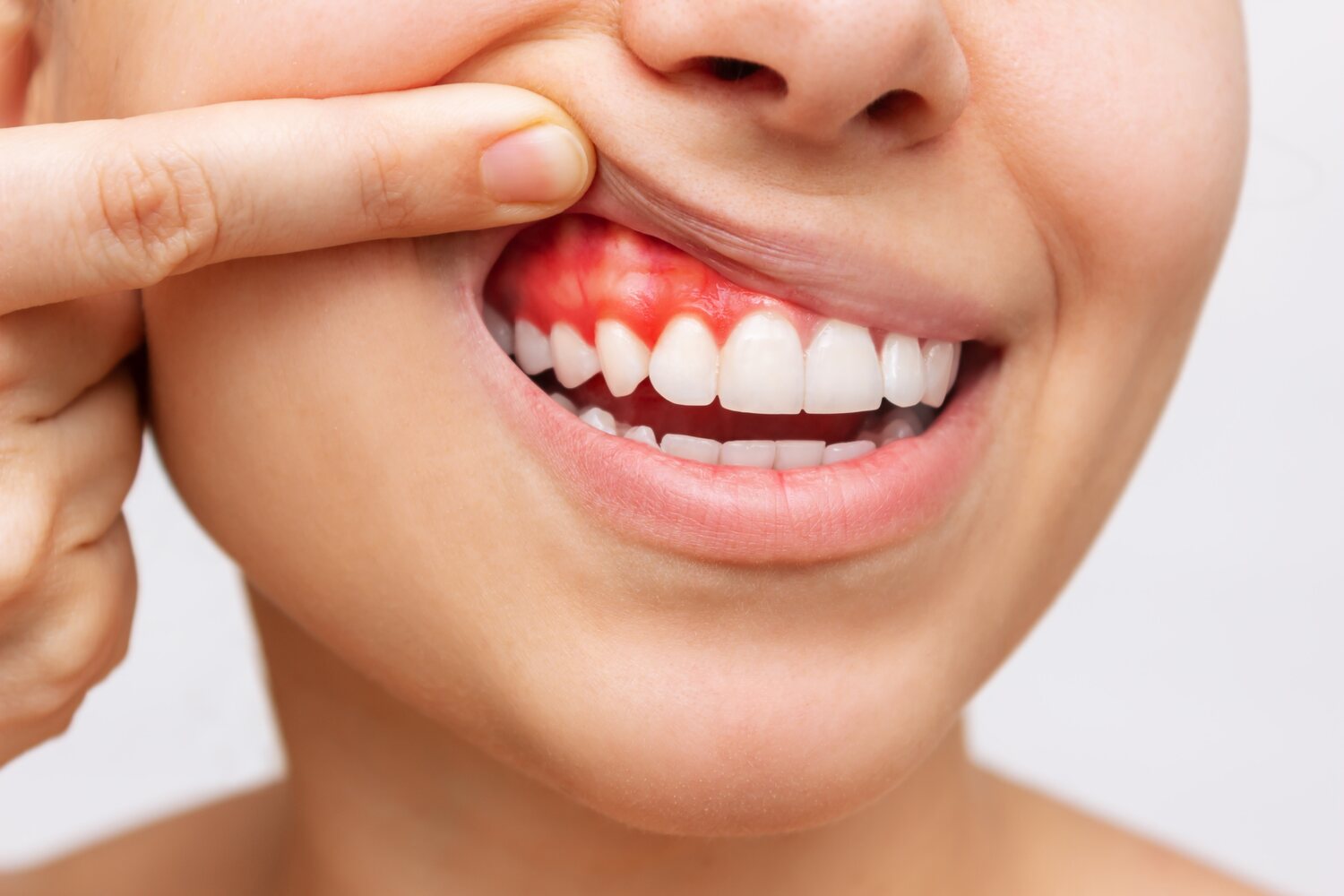
Fertility is the ability to conceive which has several factors that may favor or negatively affect it. Amazingly, dental health is one such factor that may affect fertility. Maintaining good dental health is crucial for women who are trying to conceive. Good oral health not only makes you physically appealing and presentable, but it can also make you more fertile, and fruitful. But how does dental health affect fertility?
The potential link between dental health and fertility affects both men and women. Poor dental health can negatively impact the rate of fertility, pregnancy, and even the unborn child. Thus it is important to ensure your teeth and gums are healthy. Everything that happens in your mouth can affect fertility for several reasons. This informative blog explains how dental health affects fertility, and also explores helpful tips to rejuvenate your dental and gum health to improve fertility.
In This Article
- How Does Dental Health Affect Fertility?
- Gingivitis, Periodontal Disease And Fertility
- How Does Dental Health Affect Male Fertility?
- Steps To Improve Dental And Gum Health To Improve Fertility
- When To Consult The Doctor?
- FAQ’s
How Does Dental Health Affect Fertility?
Good dental health is crucial since it paves the way for your overall physical and emotional well-being. Inculcating good oral hygiene practices can keep harmful disease-causing bacteria at bay.
Dental health issues like gum disease, and tooth decay can cause adverse effects to your general health, with infertility being the most common consequence.
Science-backed evidence suggests it lowers the sperm count, and its natural ability to swim in men. In women, it can increase the risk of infertility thrice folds. Since your mouth is the gateway to several systems in your body, bacteria can easily spread and cause damage.
Proper treatment of oral health problems can improve your general health, sperm mobility, and overall reproductive health.
Gingivitis, Periodontal Disease And Fertility

Periodontal disease is a progressive destruction of the periodontium (comprised of the cementum, gums, periodontal ligament, and alveolar bone) due to disease-causing bacteria that spread at a faster pace.
Gingivitis (early, long-lasting inflammation of the gums), if left untreated can lead to irreversible jawbone deterioration and tooth loss. This leads to the release of harmful toxins, acids, and by-products, which readily circulate in the blood and spread to other organs like the heart, lungs, kidneys, and reproductive system.
An increase in the inflammatory markers circulating in the blood, due to periodontal disease can lead to systemic inflammation.
It has been proposed that periodontal disease is linked to infertility (the inability to conceive after a year or more of unprotected intercourse, or the inability to carry the conception to term), and subfertility (it is a form of reduced fertility in couples), in a similar way which affects other systems in your body.
The inflammatory markers can interfere with fertility in the following ways
- Prevent ovulation
- Prevent implantation of the embryo
- Cross the placenta causing fetal toxicity
How Does Dental Health Affect Male Fertility?

Semen health is crucial for improved fertility in males. Research studies show that dental problems like extensive, or untreated tooth decay, and periodontal disease lead to male infertility.
The spread of oral bacteria to the male reproductive organs leads to:
- Low sperm count
- Poor sperm motility (the ability to swim)
- Abnormal sperm morphology
- Presence of bacterial infection in the semen (bacterospermia)
The infection and inflammatory response can lead to the immune system attacking healthy sperm cells, and destroying them. Furthermore, risk factors like smoking in males not only cause periodontal disease but can also negatively impact fertility.
Steps To Improve Dental And Gum Health To Improve Fertility

It is essential to take care of your dental health to improve your overall quality of life. This in turn can lead to reducing your risk of infertility.
Early and effective treatment of dental problems like cavities, and gum disease may improve male infertility and pregnancy outcomes. Though the periodontal disease cannot be treated if it occurs due to a genetic link, you can control other habits and oral hygiene practices.
Here is what you can do to lower your risk of gum disease, and improve your dental health, and your fertility rate.
1. Complete Dental And Gum Health Screening
Regular oral examination is essential since it helps diagnose dental problems at an early stage which paves the way to successful treatment outcomes.
Dental X-rays and gingival pocket evaluation are helpful diagnostic tools to detect dental problems.
2. Addressing Dental Cavities
Identifying early tooth decay during the routine oral examination, and treating it can help curb the disease-causing bacteria.
Fluoride treatment, dental sealants, and routine dental fillings can help prevent or control further damage.
3. Regular Dental Checkups And Cleanings
According to the American Dental Association (ADA), you may need to visit your dentist once in six months for a dental checkup and professional oral cleanings.
When To Consult The Doctor?
Consult your doctor if you are unable to conceive naturally for a period of six to eight months. If your doctor suspects you to suffer from poor dental health, you may be referred to a dentist for thorough oral rehabilitation to increase the chances of conception.
Infertility can be distressing and take a toll on your mental and emotional well-being. If you are having fertility issues, then poor dental health could be one of the reasons. This could be due to dental decay, or gum disease. Thus it is crucial to practice good oral hygiene habits like regular brushing, and flossing, in addition to visiting your dentist at regular intervals for a thorough screening. Take good care of your dental health to increase your chances of transitioning from a couple to a family!
FAQ’s
1. Can Poor Dental Health Affect Fertility?
Poor dental health can negatively impact fertility in both men and women. In men, poor dental health can lower the sperm count and quality. In women, oral bacteria may triple the risk of infertility.
2. How Does Periodontal Disease Affect Fertility?
Gingivitis, being the common form of periodontal disease, if left untreated can cause bone loss and tooth mobility. The toxins and by-products can spread to your reproductive system negatively impacting the quantity and quality of the sperm and the pregnancy outcome.
3. Can Periodontal Disease Delay Getting Pregnant?
Yes. periodontal disease can delay your chances of getting pregnant by increasing the time of conception by 2 months according to several evidence-based studies.
4. How Does Dental Hygiene Affect Male Fertility?
Poor dental hygiene in males can negatively impact their rate of fertility. The disease-causing oral bacteria release toxins and by-products that spread to male reproductive organs. This leads to a reduction in the sperm count and impaired sperm motility.
5. Can a Tooth Infection Stop You From Getting Pregnant?
Yes. A tooth infection can stop you from getting pregnant. The infection can lead to a cascade of inflammatory reactions in your body leading to systemic inflammation, which can involve the male and female reproductive systems.
References
- Oral Health and Quality of Life: Current Concepts – PMC – [https://www.ncbi.nlm.nih.gov/pmc/articles/PMC5535498/]
- Oral Health: The First Step to Well-Being – [https://www.ncbi.nlm.nih.gov/pmc/articles/PMC6843908/]
- Oral Health Status and Fertility Treatment Including IVF – [https://www.ncbi.nlm.nih.gov/pmc/articles/PMC5676574/]
- Periodontitis, female fertility and conception (Review) – [https://www.ncbi.nlm.nih.gov/pmc/articles/PMC9500491/]
- Male Infertility and Dental Health Status: A Systematic Review – [https://www.ncbi.nlm.nih.gov/pmc/articles/PMC6199424/]
- Could Periodontitis Affect Time to Conception? – PMC – [https://www.ncbi.nlm.nih.gov/pmc/articles/PMC4199181/]

